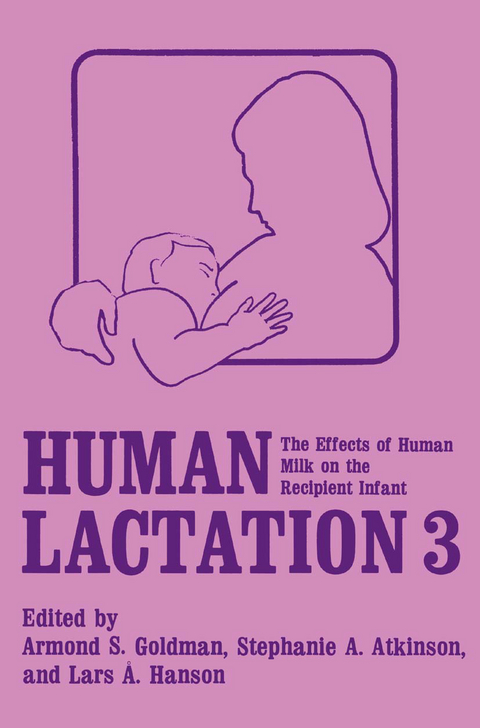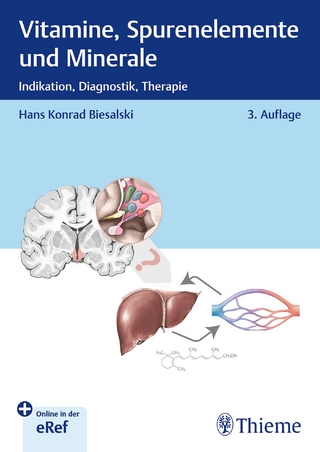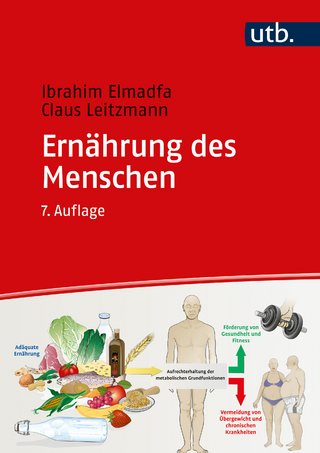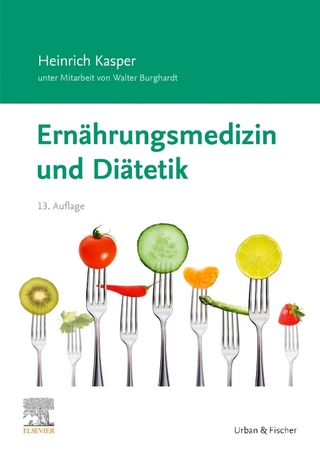
Human Lactation 3
Springer-Verlag New York Inc.
978-1-4899-0839-1 (ISBN)
to the International Conference: The Effects of Human Milk upon the Recipient Infant.- Section I Nutrient Utilization-Growth.- Nutrient Utilization and Growth in LBW Infants.- Nutrient Utilization in Term Infants.- Does Nutrition in Early Life Have Long Term Metabolic Effects? Can Animal Models Be Used to Predict These Effects in the Human?.- Nutrient Utilization: Summary of Workshop.- Trace Element Binding Ligands in Human Milk: Function in Trace Element Utilization.- Calcium and Phosphorus Balance in Preterm Infants Fed Human Milk or Human Human Milk Supplemented with Vitamin D and Minerals.- Selenium Nutrition During Lactation and Early Infancy.- Manganese Utilization in Breast-fed and Formula-fed Infants.- Folate and Human Milk.- Body Composition and Growth: Summary of Workshop.- Growth of the Breast-fed Infant.- Is Maternal Milk Production Limiting For Infant Growth During the First Year of Life in Breast-Fed Infants?.- Energy Balance and the Nature of Growth in Low Birthweight Infants.- The Effect of Protein Intake on Composition of Weight Gain in Preterm Infants.- Cholesterol in Human Milk.- Gastric Lipolysis and Fatty Acid Utilization in Preterm Infants.- Utilization of Fatty Acids by the Newborn Infant.- Carnitine in Relation to Feeding Infants.- Section II Growth Factors, Hormones and Inducers.- Hormones in Milk: Their Presence and Possible Physiological Significance.- Summary of Workshop: Growth Factors, Hormones and Inducers.- Intestinal Absorption of Epidermal Growth Factor in Newborn Lambs.- Effects of Human Milk Growth Factor on Gastric and Duodenal Mucus Formation.- ?-casomorphins: Do They Have Physiological Significance?.- Production of Growth Factors by Normal Human Mammary Cells in Culture.- Section III Host Resistance.- Summary of Workshop: HostResistance.- The Effect of Feeding Human Milk on the Development of Immunity in Low Birth Weight Infants.- Inhibition of Bacterial Adhesion and Toxin Binding by Glycoconjugate and Oligosaccharide Receptor Analogues in Human Milk.- Transfer of Tuberculin Immunity from Mother to Infant.- Prevention of Atopic Disease: Environmental Engineering Utilizing Antenatal Antigen Avoidance and Breast Feeding.- Section IV Potentially Harmful Effects.- Summary of Workshop: Potentially Harmful Effects of Human Milk Upon the Recipient Infant.- Viral Contamination of Milk.- Transfer of Maternal Food Proteins in Milk.- Potentially Toxic Effects of Drugs and Toxins in Human Breast Milk.- Vitamin K Deficiency in Breastfed Infants.- Trans-fatty Acids in Human Milk and Infant Plasma and Tissue.- Section V Epidemiology.- Report of the Epidemiology Workshop: Introduction.- Breast Feeding and Child Health: Methodologic Issues in Epidemiologic Research.- Report of the Epidemiologic Workshop: Workshop Notes.- Report of Epidemiology Workshop: Recommendations Regarding Future Research Concerning the Effects of Human Milk Upon Infant Recipients.- Section VI Poster Session.- Pregastric Lipase Triggers Fat Digestion.- The Source of “Lost Calories” from Fortified Breast Milk.- Glycoproteins of the Human Milk Fat Globule Membrane: Ultrastructure and Relation to Fat Absorption.- Comparison of the Deuterium Dilution and Test-Weighing Techniques for the Determination of Human Milk Intake.- Infant Self-Regulation of Breast Milk Intake.- X-Ray Structural Studies of Lactoferrin.- Whey Proteins in Feces of Preterm Infants Receiving Preterm Human Milk and Infant Formula.- Fortified Human Milk for Very Low Birth Weight Infants: Correction of Mineral Inadequacies.- Relationships Among Maternal Size andCarcass Composition, Lactational Performance, and Growth and Composition of the Young: Comparisons Across Varying Degrees of Chronic Malnutrition.- Human ?-casomorphins-8 Immunoreactive Material in the Plasma of Women During Pregnancy and After Delivery.- Effect of Breast Milk Ingestion Upon the Thyroxinemia of Suckling Rat Pups.- Motility of Human Milk Leukocytes in Collagen Gels.- Isolation of Lymphocyte Activating Factors from Human Milk.- Participants.- Contributors.
| Zusatzinfo | XII, 400 p. |
|---|---|
| Verlagsort | New York |
| Sprache | englisch |
| Maße | 155 x 235 mm |
| Themenwelt | Medizin / Pharmazie ► Gesundheitsfachberufe ► Diätassistenz / Ernährungsberatung |
| Medizin / Pharmazie ► Medizinische Fachgebiete ► Pädiatrie | |
| Naturwissenschaften ► Biologie ► Biochemie | |
| Technik ► Lebensmitteltechnologie | |
| ISBN-10 | 1-4899-0839-0 / 1489908390 |
| ISBN-13 | 978-1-4899-0839-1 / 9781489908391 |
| Zustand | Neuware |
| Informationen gemäß Produktsicherheitsverordnung (GPSR) | |
| Haben Sie eine Frage zum Produkt? |
aus dem Bereich


